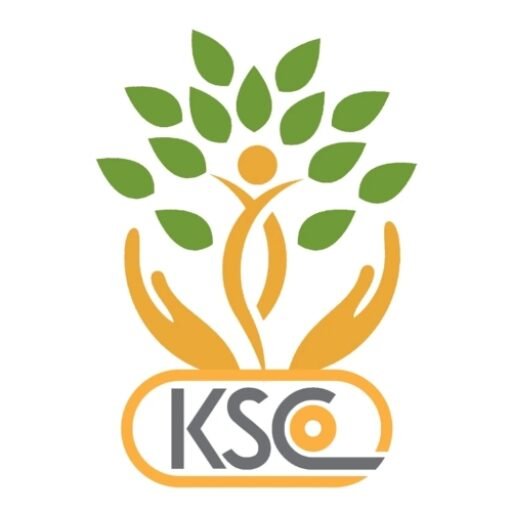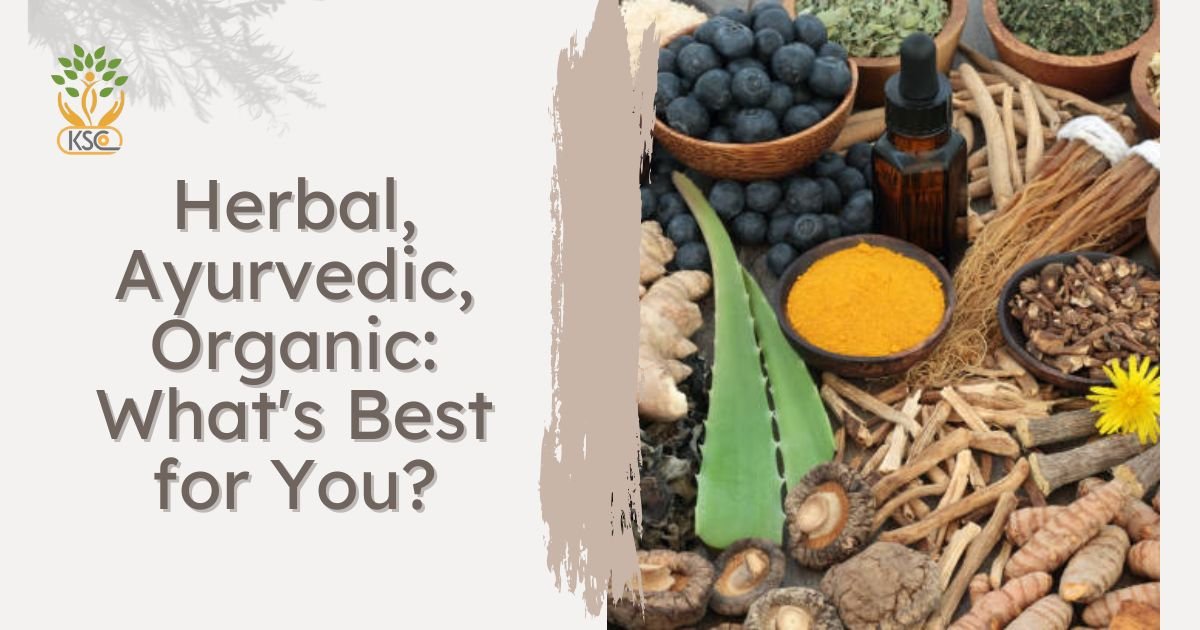As people desire a better lifestyle, they use organic food, medicine, and beauty alternatives. The similarities in this health movement are organic, Ayurvedic, and herbal. Though their methods, utilises, and places of origin differ greatly, all three are highly stressful in nature. Knowing the variations will help you to make informed, personalised selections suitable for your body’s needs and lifestyle preferences.
An Origin of Herbal:
Plants with medicinal or medical qualities are the source of herbal goods. These consist of bark, leaves, roots, seeds, and flowers. Numerous ancient systems, including Chinese medicine, American treatments, and traditional treatment techniques, are the foundation of herbal medicine. These days, customers are looking for natural remedies for common illnesses, including stress, colds, and digestive problems, and more frequently use herbal teas and medicines.
Herbal skincare aims to organically maintain and cure the skin by utilising plant-based substances. It contains medicinal and antibacterial herbs such as chamomile, lavender, turmeric, neem, and aloe vera. Antioxidants, vitamins, and natural oils exist in these substances, which help to make you calm, reduce pimples and encourage glowing skin. Herbal skin care is perfect for sensitive skin because it doesn’t contain harmful substances like synthetic products. Additionally, it highlights eco-friendly and sustainable methods. For centuries, people from many cultures have utilised herbal medicines to provide mild yet efficient skin care products that promote long-term skin health by fusing ancient knowledge with contemporary demands.
An origin of Ayurvedic:
Over 5,000 years ago, the Indian medical system known as Ayurveda was developed. It promotes the coordination of the mind, body, and spirit to preserve health and prevent disease. Understanding your dosha Vata, Pitta, or Kapha combines your mental, emotional, and physical qualities based on Ayurveda.
Ayurvedic medicines indicate greater than herbs. They include sometimes animal derivative products, other plant-based components, and intricate combinations of minerals. They determine usage as tonics, oils, powders, drinks, and pills. Triphala, a mixture of three fruits, is supposed to help with digestion and detoxification. Ashwagandha is another Ayurvedic herb quite popular for boosting strength and lowering stress.
An origin of Organic:
Organic describes the method used in growing and handling agricultural goods. Organic farming avoids industrial pesticides, chemical fertilisers, modified organisms, and antibacterial medications. Instead, using materials and natural processes keeps soil fertility and balance in nature. If grown naturally, organic goods can include food, clothes, cosmetics, and even herbal and Ayurvedic treatments.
Organic skincare products contain natural ingredients grown without the help of artificial pesticides or herbicides, ensuring the skin’s safety and cleanliness. These products often include plant extracts, essential oils, and natural fats to help maintain the skin’s health while reducing irritation. Organic skincare is ideal for sensitive skin and supports long-term skin health. It also advances ecologically sustainable and animal-free farming techniques. Customers of organic goods have premium access to products rich in nutrients that enhance the natural balance of their skin. This approach combines beauty and health to provide a journey to excellent, healthy skin.
In what way do they intersect?
It’s important to note that herbal, ayurvedic, and organic frequently intersect. For instance, organic herbal elements might be found in an Ayurvedic product. All three categories could apply to the same thing. This is particularly true for luxury medical goods that value environmental responsibility, heritage, and health.
A product like mint tea for digestion can be herbal but not Ayurvedic. Minerals and herbs may be included in an Ayurvedic preparation. Additionally, because organic apples are grown cleanly, they promote health even though they may not have medicinal qualities. You can make better decisions if you are aware of these distinctions. One plant, such as classical root, could be beneficial. Perhaps an intensive Ayurvedic treatment will work better. Organic choices are ideal if chemical use or environmental damage are your main concerns.
What would be best for you?
Depending on your skin type, concerns, and personal values, you can choose from herbal, Ayurvedic, and organic skincare products. Perfect for people desiring gentle, chemical-free treatment, herbal skincare emphasises plant-based products with calming and healing qualities. Through roots in traditional Indian medicine, Ayurvedic skincare uses minerals, oils, and herbs based on a person’s dosha to improve skin health and restore balance. It’s perfect for people who want natural, reliable solutions.
Organic skincare, on the other hand, is ideal for environmentally aware customers looking for safe, free-of-chemical solutions because it emphasises components that are grown without the use of dangerous chemicals. All three options are natural and healthy; however, organic prioritises protecting the environment, Ayurvedic is individualised and traditional, and herbal is frequently more general. You can choose the finest course of action if you are aware of your health priorities and the particular requirements of your skin. You can even combine each component for an effective skincare treatment powered by nature.
K. Somu Chetty & Co. is a private company headquartered in Chennai that specialises in wholesale and retail selling agricultural, decorative, and medicinal goods. It has been established since 2017. K. Somu Chetty & Co. combines traditional knowledge with contemporary health to provide herbal, Ayurvedic, and organic skincare products. They sell turmeric variants, including Virali Manjal and Gundu Manjal, which are noted for their antibacterial and skin-brightening qualities, and dried herbs like Tanner’s cassia, hibiscus, and rosemary. They also provide natural cleaning scrubs like Vetiver and Loofah Ridge Gourd to address different skin types and issues. With over 80 years of experience, the company promotes holistic skincare products with a natural foundation while guaranteeing authenticity and quality in retail and wholesale sectors.
Conclusion:
Herbal, Ayurvedic and organic products are becoming increasingly popular, which indicates a global trend towards healthier living. Despite their strengths, they all aim to promote health sustainably, respectfully, and naturally. The ideal option is the one that fits your body type, permanent health objectives, and personal beliefs, whether you select one or combine aspects of all three.



